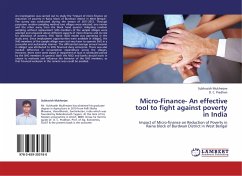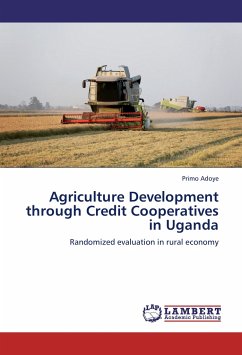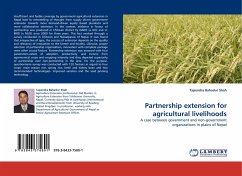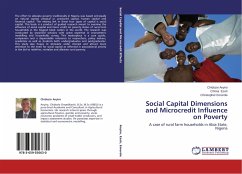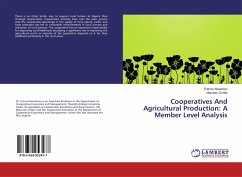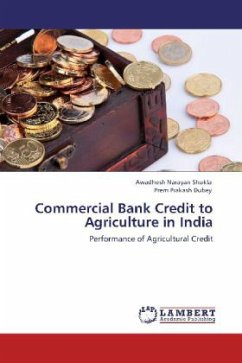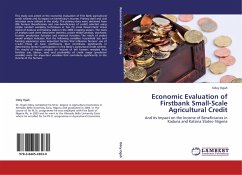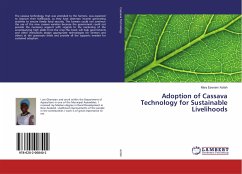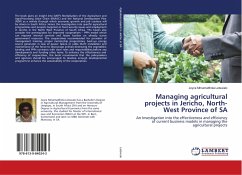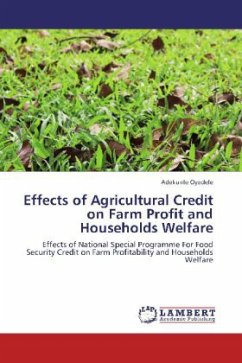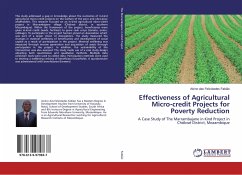
Effectiveness of Agricultural Micro-credit Projects for Poverty Reduction
A Case Study of The Marrambajane in Kind Project in Chókwé District, Mozambique
Versandkostenfrei!
Versandfertig in 6-10 Tagen
36,99 €
inkl. MwSt.

PAYBACK Punkte
18 °P sammeln!
This study addressed a gap in knowledge about the outcomes of in-kind agricultural micro-credit projects on the welfare of the poor and ultra-poor smallholders. This research focused on an in-kind agricultural micro-credit project in Marrambajane village (Chókwé district, in southern Mozambique). Within the framework of the project, beneficiaries were given in-kind credit (seeds, fertilizer) to grow cash crops (tomato, onion, cabbage). To participate in the project farmers joined an Association which was part of a larger Union of Associations. The study measured the changes in material wellb...
This study addressed a gap in knowledge about the outcomes of in-kind agricultural micro-credit projects on the welfare of the poor and ultra-poor smallholders. This research focused on an in-kind agricultural micro-credit project in Marrambajane village (Chókwé district, in southern Mozambique). Within the framework of the project, beneficiaries were given in-kind credit (seeds, fertilizer) to grow cash crops (tomato, onion, cabbage). To participate in the project farmers joined an Association which was part of a larger Union of Associations. The study measured the changes in material wellbeing of beneficiaries and development of social capital as a result of participation in the project. Material wellbeing was measured through income generation and acquisition of assets through participation in the project. In addition, the sustainability of the intervention was also assessed. The study made use of a case study design adopting both quantitative and qualitative methods. Multipledata collection tools were used to collect data. Participatory methods were used to develop a wellbeing ranking of beneficiary households. A questionnaire was administered with beneficiaries (farmers).



